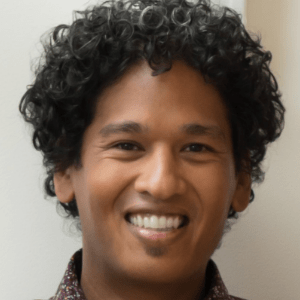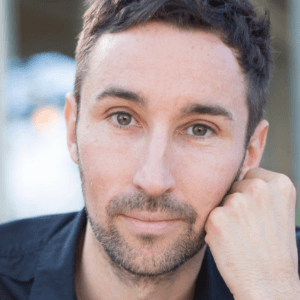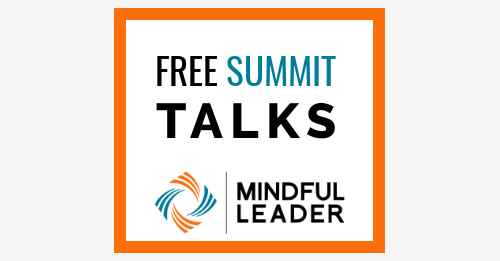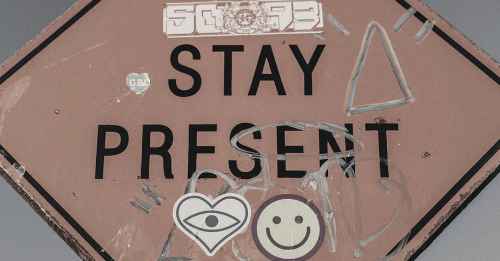Blog
Discovery
Case Study: Mindfulness@ Microsoft - An Internal Champion's Pursuit of Scaling Mindfulness Worldwide
This Free Summit Talk has Expired.

Charles Morris speaks at the 2019 Mindful Leadership Summit. Hear about the lessons learned, important realities, and opportunities faced when a former engineer transitions into scaling mindfulness for the competitive business environment at Microsoft.
Celebrating 6 Months of Meditate Together!
By Mo Edjlali and Meditate Together Volunteer Facilitators
It’s hard with all the chaos, injustice, death, and suffering we are collectively witnessing to celebrate much... and, more then ever, we need to celebrate the things that inspire us and remind us of our vast potential for compassion towards one another.
About 6 months ago as the gravity and impact of COVID-19 hit, I thought to myself: What can I do? What can Mindful Leader do? Then I thought to myself... I’m not alone. I’m not the o…
Training Executives to Make Friends with Chaos & Complexity - insights from Google
This Best of Summit talk has expired.
Bill Duane at the 2018 Mindful Leadership Summit. Google depends on leaders who can adjust to a landscape that is increasingly volatile, uncertain, complex, and ambiguous. Learn from Google’s former Superintendent of Well Being about how mindfulness helps you develop resilience, and how connecting deeply with yourself and others is the foundation for leading with authenticity.
Please be advised: Contains mature language.
A Skeptic Neurologist's MBSR Journey
View our Free Guide - What is MBSR?
By Gus Castellanos, guest contributor
I practiced Neurology and Sleep Medicine for 25 years before retiring. I came to MBSR in 1998 while still practicing medicine. So, when a colleague brought MBSR to the Medical Center we were working at, he asked me to refer patients, “We have this new program called Mindfulness-Based Stress Reduction - MBSR. Please send your chronic pain patients, insomniacs, caregivers that are burning out - anyone who is stressed,”…
The 3 Core Lenses of Mindful Marketing
By Mo Edjlali, Mindful Leader President and Chief Community Organizer
Recently, it seems everywhere I turn marketing is taking a bit more of a mindful-esque approach. Organizations are flaunting their social consciousness, tech companies are sending me robo messages that they love me, and kindness is now a campaign slogan. Whether you are in a leadership position trying to convene a compelling message, trying to share the benefits of mindfulness within your organization, or a vendor of mindfuln…
The Business Case for the Triple Bottom Line: People, Planet, & Profit
This free summit talk has expired.
Hammad Atassi at the 2017 Mindful Leadership Summit. What does it mean to be a 3BL, sustainable business? Why is there a demand for sustainable/mission-driven businesses? And why do we need those businesses to engage in systemic policy work that is authentically aligned with sustainable commitments?
A Mindful Alternative to Meditation
By John J. Murphy, guest contributor
Meditation is an immensely helpful practice to bring harmony, balance, and inner peace into one’s life. It’s also a great way to boost creativity and improve performance. That’s why I do it every day to center myself, open my heart, clear my mind, and let go of anything weighing me down. Having said this, I am often asked about alternative practices or “tools” one can use to boost consciousness and elevate awareness. It’s not a bad idea to have more than one…
Mindful Behavior Change at the Organizational Level: Science & Lessons Learnt
This free summit talk has expired.

Parneet Pal, MBBS, MS shares how Wisdom Labs has created community and technology apps, to help organizations implement mindfulness in companies at @Work 2019. As a trained medical physician, she shifted her career to focus on preventative measures for wellness. Parneet shares factors important for motivation and behavior change alongside mindfulness initiatives. Additionally, she shares 6 key aspects for implementing mindfulness programs in organizations.
5 Critical Organizational Pain Points that Mindfulness can Help
By Mo Edjlali, Chief Community Organizer, Mindful Leader
It's been exciting and sometimes concerning for me to watch mindfulness go mainstream. Though mindfulness has been overhyped in some ways - marketed as a panacea to fix everything - I believe that we are at the early stages of the potential for the application of mindfulness in the workplace. Here are some of the critical pain points that all organizations across industry and size face, which I believe workplace mindfulness programs will …
Trauma-Sensitive Mindfulness: Learn how to Recognize Trauma, Respond Skillfully, and Prevent Retraumatization
This Free Summit talk has expired.

Emerging research suggests that mindfulness interventions can help or hinder trauma survivors, raising a crucial question for those offering mindfulness practices: How do you minimize the potential dangers of mindfulness for survivors while leveraging its powerful benefits at the same time? Designed for anyone offering mindfulness practices, this session will equip you with the tools you need to offer mindfulness in a safe, effective, trauma-sensitive way.






